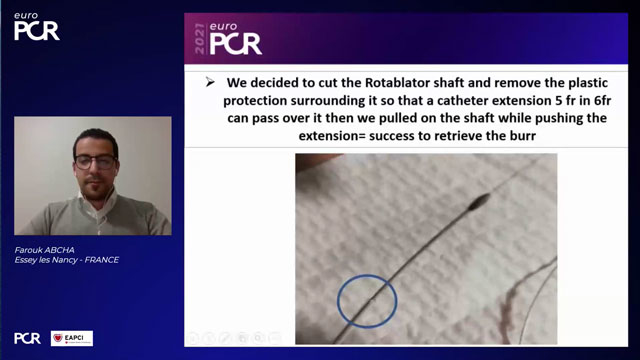3140 results for «339»
3140 results
Mastering multi-modality imaging for transcatheter valve interventions with chamber views and S-curves
20 May 2021 – From EuroPCR 2021
Thanks to this session, originally presented during EuroPCR 2021, get proved that chamber views can be appreciated across all cardiovascular imaging modalities, discover how important chamber views and S-curves can be for transcatheter valve interventions, and learn why chamber views can enhance joint work between interventional cardiologists...
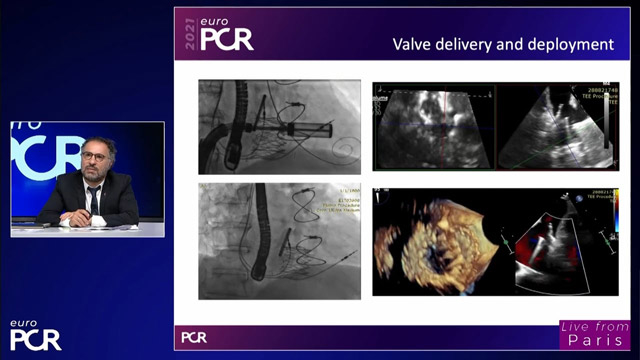
Transcatheter mitral valve replacement and repair: why do we need both
18 May 2021 – From EuroPCR 2021
Watch this session presented by Michael Borger, Nicolas Dumonteil, Paolo Denti, Lenard Conradi, Hendrik Treed and Ralph von Bardeleben in order to learn about the expanded treatment options and latest innovations in transcatheter mitral valve therapies, and to tailor your treatment options to optimise patient outcomes with...
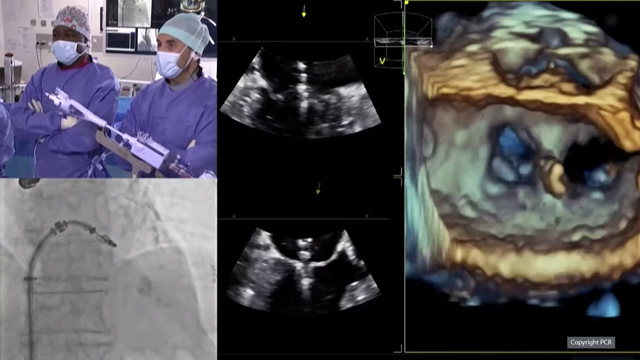
Where deliverability matters: challenging cases requiring a low profile
18 May 2021 – From EuroPCR 2021
Watch this session presented by Robert Byrne, Ralph Toelg, Stefano Galli, Farrel Hellig and Jack Tan in order to participate in interactive reviews of interesting DES, DCB and covered stent cases and outcomes, to assess where ultrathin DES, DCB and covered stent provide a clinical benefit, and to...
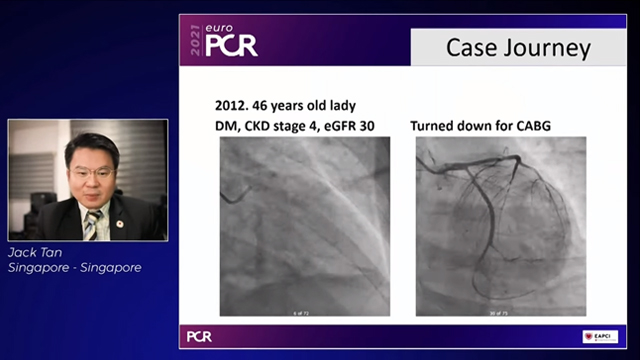
Cardiovascular Innovation Pipeline: Transcatheter Mitral Replacement Devices
18 May 2021 – From EuroPCR 2021
Mitral regurgitation is a leading cause of valvular heart disease in Western countries. Transcatheter mitral valve replacement (TMVR) has emerged as a potential therapeutic option for patients with severe mitral disease who are at high risk for conventional surgery. Watch these presentations to find out about...
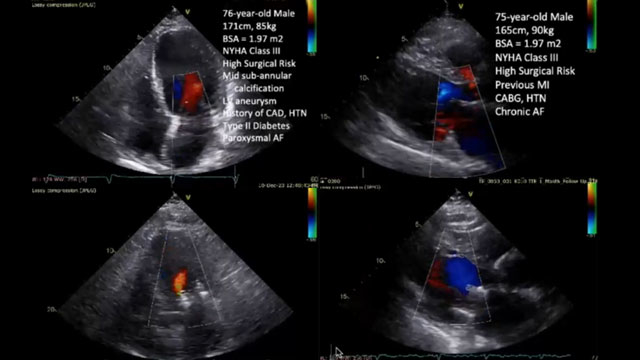
EuroPCR 2021 Jon DeHaan Foundation Award
20 May 2021 – From EuroPCR 2021
View a replay of the Jon DeHaan Foundation Award Ceremony, during which David Kuraguntla and Domenico D’Amario receive rewards for their innovative developments in cardiovascular medicine!
Learn more about the Jon DeHaan Foundation: https://www.jondehaanfoundation.org/
This session was originally presented during EuroPCR 2021.

EuroPCR 2021 Hotlines / Late-Breaking Trials: CENTURY JSV, SORT OUT IX, OUTDES, Epic02-RANGO, PIONEER III, and more!
26 May 2021 – From EuroPCR 2021
Find out more about various studies & registries in stents:
- First machine learning derived risk score for target lesion failure
- Ultrathin versus Conventional Second-Generation DES: Meta-Analysis of RCTs
- Five-year outcomes after coronary stenting of small vessels - CENTURY JSV study
- 2-year outcomes of the randomized SORT OUT IX Trial
- Outcomes of...
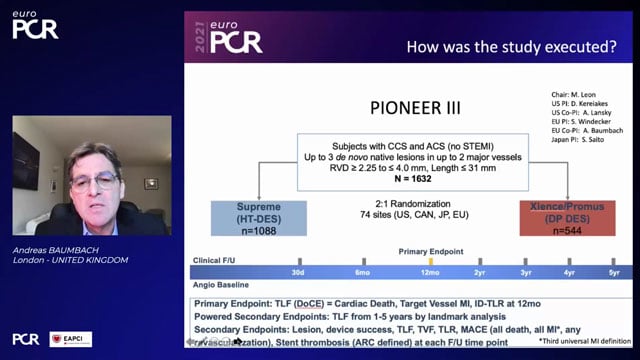
Complex PCI in coronary calcified lesions, the right tools and techniques
18 May 2021 – From EuroPCR 2021
Watch this session presented by Flavio Luciano Ribichini, Colm Hanratty, Mark Kennedy, Emile Mehanna, David Leistner and Akiko Maehara in order to learn practical tips to assess calcified lesions with IVUS, to discuss the device selection for calcium treatment to improve patient outcome, and to know more about SYNERGY MEGATRON,...
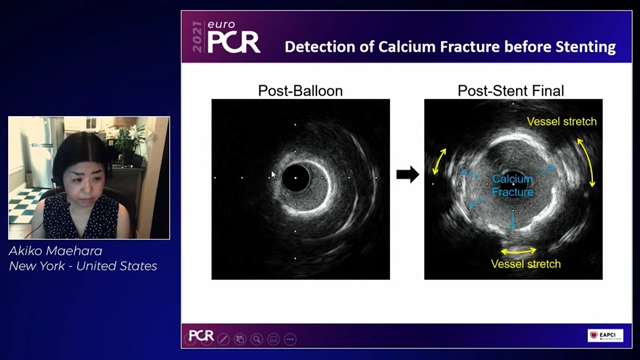
A randomised study comparing imaging guided implantation of Orsiro and Xience - CASTLE study
20 May 2021 – From EuroPCR 2021
Watch this LBT session, which was originally presented during EuroPCR 2021, to find out more about the CASTLE study, whose aim is to access the results of two types of DES implanted with image guidance in all-comers.
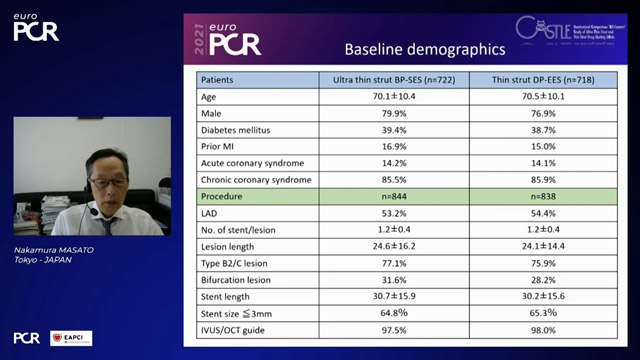
EBC MAIN - the European Bifurcation Club left main coronary bifurcation study
19 May 2021 – From EuroPCR 2021
In this session, originally presented during EuroPCR 2021, discover the EBC Main study and follow the in-depth discussion lead with the PCR clinical research team about the results of this important trial comparing stepwise provisional versus systematic dual stenting strategies.
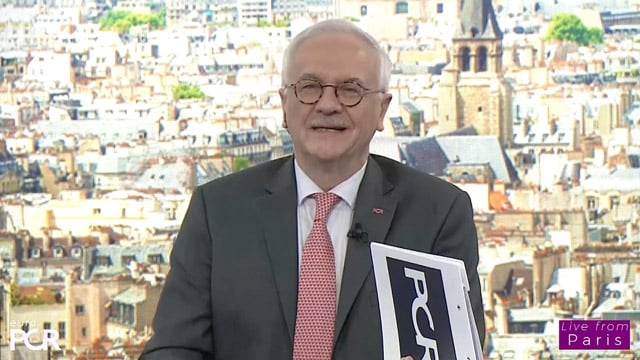
Below the knee (BTK) angioplasty - Session with LIVE demonstration
18 May 2021 – From EuroPCR 2021
Watch this session if you want to review indications, treatment strategies and equipment, to discuss LIVE procedures and to appreciate the similaritites between coronary and BTK interventions.
This session was originally presented during EuroPCR 2021.
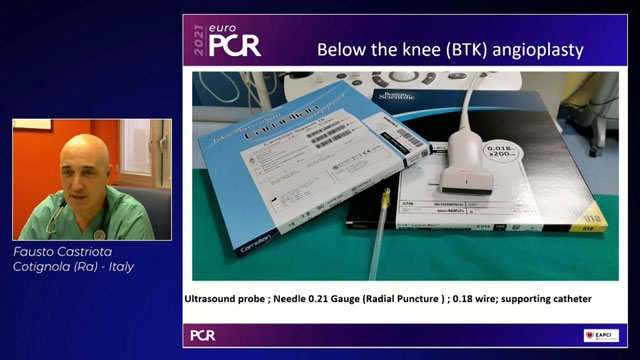
EuroIntervention - Most cited papers of the year 2020
18 May 2021 – From EuroPCR 2021
Thanks to this session, which was originally presented during EuroPCR 2021, by D. Capodanno, Editor-in-chief, and N. Gonzalo & D. Mylotte, deputy editors, discover the top 3 most cited EuroIntervention Journal papers in 2020, and hear the reaction of the winner, interviewed for the occasion.
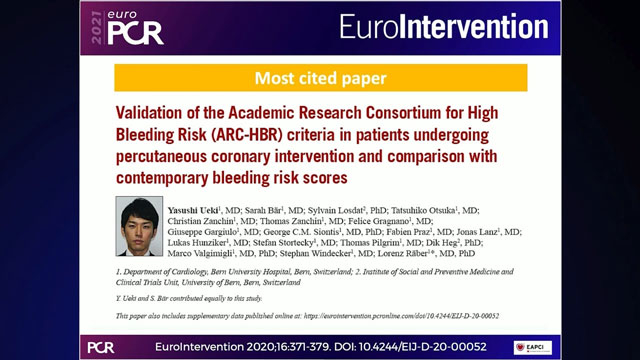
Best of the European Heart Journal
19 May 2021 – From EuroPCR 2021
Watch this session, originally presented during EuroPCR 2021 by F. Crea, Editor-in-chief, and C. Berry, Executive Editor, to find out more, both about the most cited European Heart Journal original research article, and the most Almetric scored one, and enjoy in-depth analysis of the SOLVE-TAVI and DAEDALUS studies in...
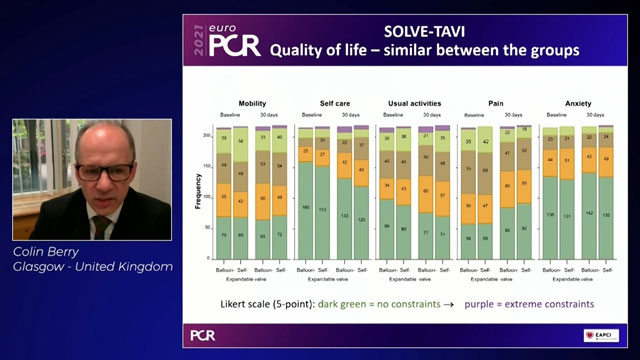
PCR's Got Talent - Valvular Interventions
18 May 2021 – From EuroPCR 2021
Thanks to the abstracts of this session, find out more about heterotopic caval valve implantation preprocedural assessment, patient-specific computer simulation to predict long-term outcomes after TAVI, and much more!
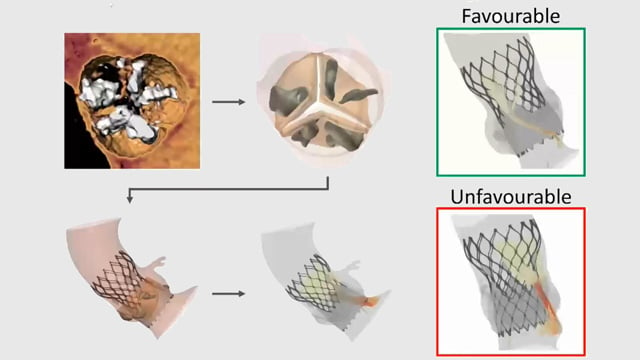
Clinical applications of IVUS, OCT and other intracoronary imaging techniques: practical simulation-based learning (Part 2)
19 May 2021 – From EuroPCR 2021
Often, angiography is not enough, and imaging can be very useful. In this session, originally presented during EuroPCR 2021, our experts use clinical cases to demonstrate that in all circumstances (ostial LAD, stent failure, bifurcation, calcified lesion, ACS...), imaging is quite simple to analyze and particularly...
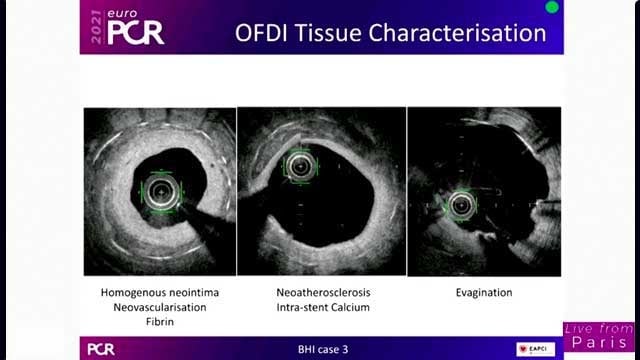
SFA and popliteal interventions (part 2) - Session with LIVE demonstration
18 May 2021 – From EuroPCR 2021
Watch this session if you want to review indications, treatment strategies and equipment and to discuss LIVE procedures.
This session was originally presented during EuroPCR 2021.
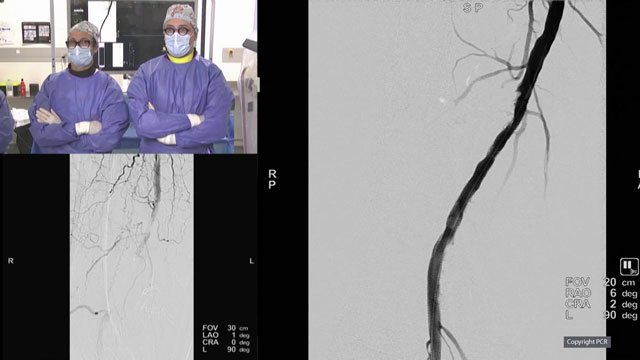
Interventional treatment for heart failure
18 May 2021 – From EuroPCR 2021
Watch this session if you want to learn about interventional techniques for monitoring and treatment of patients with heart failure and to review options for haemodynamic support in patients with acute heart failure.
This session was originally presented during EuroPCR 2021.
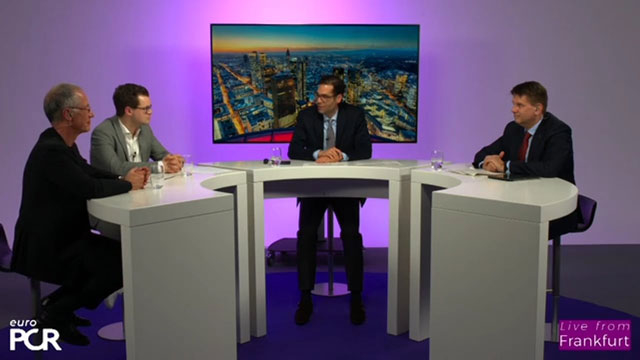
EuroPCR 2021 Andreas Grüntzig Ethica Award
20 May 2021 – From EuroPCR 2021
Relive the Ceremony during which the inspirational Dr. Marie-Claude Morice receives the 2021 Andreas Grüntzig Ethica Award, in recognition of her outstanding ongoing contribution to training, education and clinical research in interventional cardiovascular medicine.
This session was originally presented during EuroPCR 2021.
Dr. Marie-Claude Morice
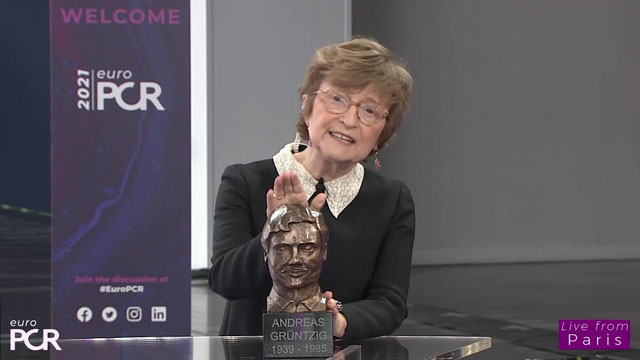
CTO: imaging and devices
14 Apr 2021 – From EuroPCR 2021
Thanks to this session, learn how to recanalize a chronic total occlusion of the right coronary artery, how IVUS can facilitate and guide PCI to ostial left circumflex CTO, how hi-tech devices are also needed in calcified artery occlusions, and even more!
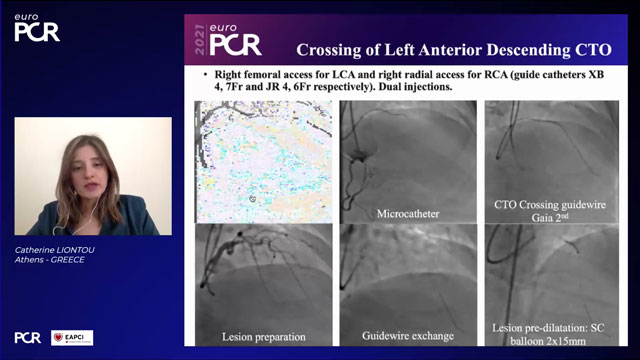
Deep vein and pulmonary interventions
In this session, observe right-sided ventricular failure due to Ebstein's anomaly, touch on large pulmonary arteriovenous malformation embolization, better master catheter thrombectomy to treat acute right iliofemoral DVT, and much more!
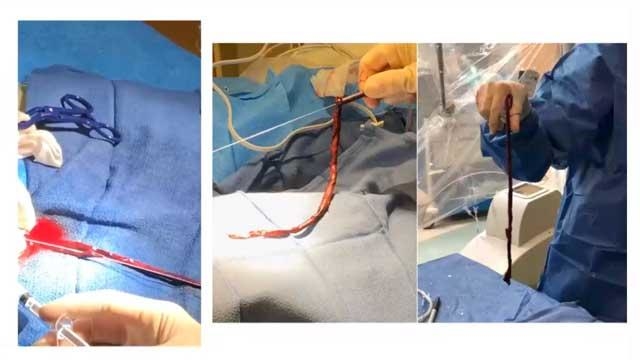
Complex rotational atherectomy
12 May 2021 – From EuroPCR 2021
This session will be useful if you wish to find out more about heavy coronary calcification and wire entrapment, underestimated type A lesion, no-option critical 3 vessel CAD, and more!
